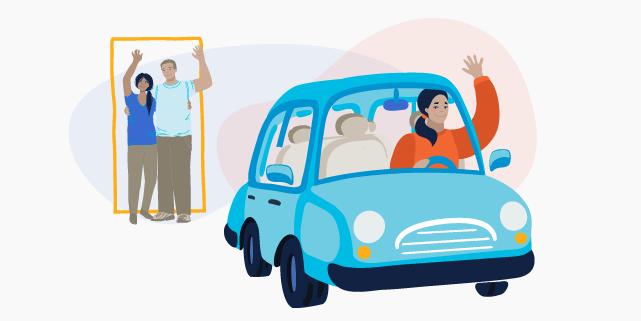How Loneliness Could Be Changing Your Brain and Body
 People were already lonely before the coronavirus pandemic hit. Before COVID-19 stranded folks at home and made getting close to others an unnerving experience, researchers were realizing Americans were lonelier than ever.
People were already lonely before the coronavirus pandemic hit. Before COVID-19 stranded folks at home and made getting close to others an unnerving experience, researchers were realizing Americans were lonelier than ever.
A 2018 study from health care insurer Cigna found that 54% of 20,000 Americans surveyed reported feeling lonely. In the span of a bit more than a year, the number rose to 61%. Generation Z adults 18-22 years old are supposedly the loneliest generation, outpacing Boomers, Gen X and Millennials, despite being more connected than ever.
Loneliness has hit epidemic proportions, said Doug Nemecek, chief medical officer at Cigna.
More troubling: A growing body of research suggesting that being lonely for a sustained period of time could be bad for people’s physical and mental wellbeing.
As a result of COVID-19, keeping distance from others is the safest way to stay healthy, despite the fact it could compound feelings of isolation. It’s a new reason to consider how loneliness can impact everything from your brain, to your heart, to your immune system.
“It’s very distressing when we are not a part of a group,” said Julianne Holt-Lundstad, professor of psychology and neuroscience at Brigham Young University. “We have to deal with our environment entirely on our own, without the help of others, which puts our brain in a state of alert, but that also signals the rest of our body to be in a state of alert.”
Staying in that state of alert, that high state of stress, means wear and tear on the body.
Loneliness is something almost everyone can relate to, but scientists are still working to understand how and why it impacts health. One of the fundamental challenges of the research: Loneliness is a subjective feeling that can’t really be measured. Not even the size of a person’s social network can guarantee how lonely they are.
“Loneliness [can] be a good predictor of accelerated cognitive decline,” said Turhan Canli, professor of integrative neuroscience at Stony Brook University.
How exactly loneliness links up with health issues isn’t entirely understood. One idea, Canli said, is that if someone is lonely and feeling down on themselves, they might be less likely to take care of themselves. They might not eat right. They might drink too much, worry a lot, sleep too little. Habits like those can have longer-term effects.
There’s more research to do, including the role heritability plays in gene expression. Earlier work by a UCLA researcher named Steve Cole suggested one possibility — that the release of certain hormones while under the stress of sustained loneliness could be activating certain genes linked to health issues.
“The subjective experience has to be translated somehow in the brain into biology, and so that’s that’s we’re looking at now,” Canli said.
Better understanding these relationships could one day influence therapies designed to treat patients.
Excerpted from “How Loneliness Could Be Changing Your Brain and Body” on CNET. Read the full article for more information.
Source: CNET | How Loneliness Could Be Changing Your Brain and Body, https://www.cnet.com/news/how-loneliness-could-be-changing-your-brain-and-body | © 2020 CBS Interactive Inc.
A screening can help you determine if you or someone you care about should contact a mental health professional. Care Managers can arrange a free 30-minute Care Consultation so you can explore options with an expert. Call or email our Care Managers at 650.688.3625 or careteam@chconline.org to set up an initial Consultation appointment.





